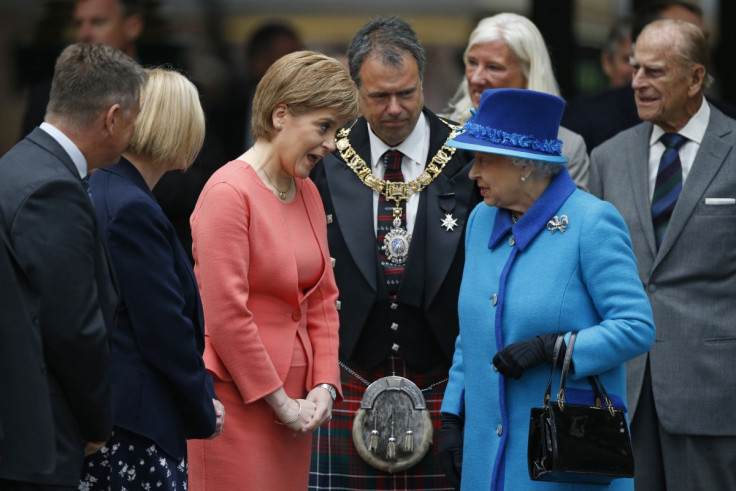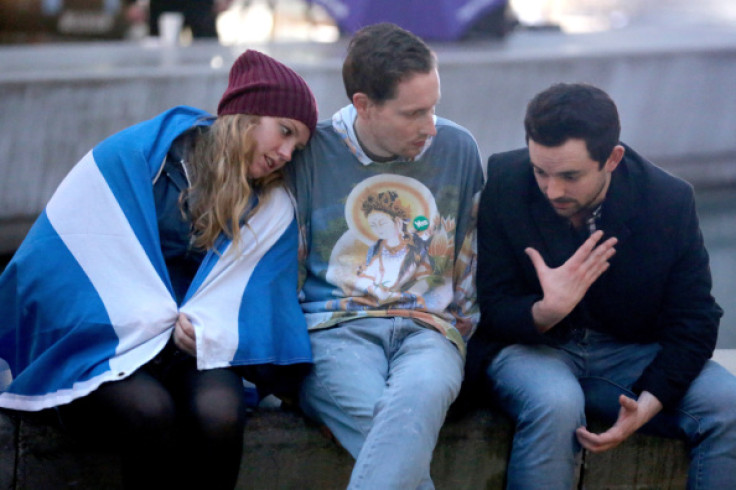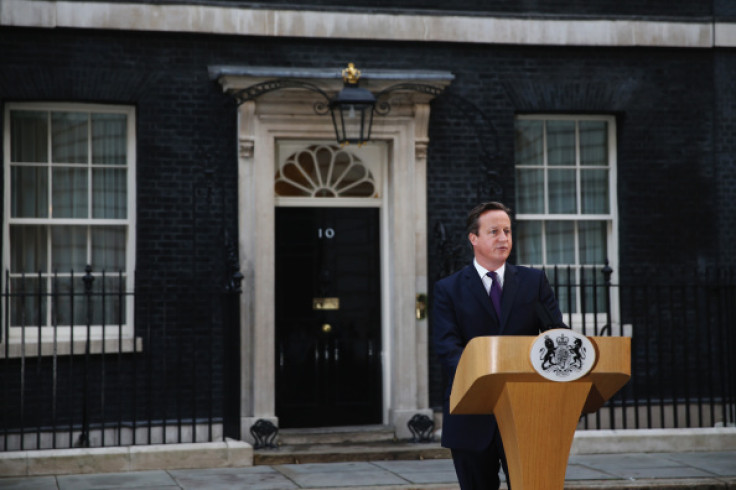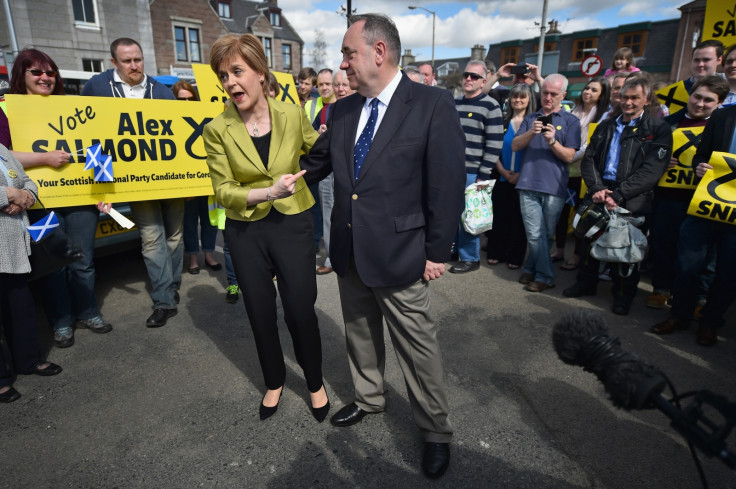One year on: Battle of words between Sturgeon and Cameron, but Scottish leader has already won

Listening to the war of words between David Cameron and Nicola Sturgeon on the first anniversary of the independence referendum, you'd be forgiven for thinking that time has stood still over the last year. Cameron was still making a profoundly anti-democratic attempt to reframe the "No" victory as a decision to close off all debate on independence for "a lifetime". Sturgeon was still pointing out that Scotland had voted No narrowly and conditionally, on the basis of grandiose promises made by the UK government, and that it is up to Cameron to make good on those promises if he wants to avoid the very real possibility of an early second referendum.
But here's the thing – time hasn't stood still. Last autumn, the battle to establish the meaning of the referendum result was being fought for real. Now, both sides are going through the motions for theatrical purposes only, because Sturgeon has already won. Scotland was invited to "move on" from the independence debate, and firmly declined to do so. To borrow a line that Nick Clegg once used inadvisedly about Alex Salmond, those still pushing the "once in a lifetime" argument are left looking like Japanese soldiers in the jungle who haven't been told the war is over.
But how did we get here? One year ago, it seemed perfectly possible that Cameron's preferred narrative would take root. Many of us on the "Yes" side feared that recent converts to the independence cause would peel away, and would come to regard the referendum as a disruptive event that should never be repeated. But the reverse happened. In the weeks after polling day, opinion polls showed a marked increase in support for independence, which has not been reversed since. We know the surge was real because most polling firms took the precaution of weighting their results by recalled referendum vote, to correct for the possible presence of too many "eager Nats" in their samples.

And, if anything, the enthusiasm for a relatively early second referendum has been even more remarkable than the swing in favour of independence. In the wake of the narrow No victory, polls showed that a very substantial minority of 40% or more believed there should be a repeat vote within just five years, and that the centre of gravity was for a referendum within 10 years. Again, the initial assumption was that public opinion would become more 'realistic' once the hype had died down, but the poll findings have remained utterly consistent over the last 12 months.
It turns out that Yes voters do not, in the cold light of day, regard their support for independence as a transient madness. A great many of them instead view the referendum as the moment they awoke from a long political slumber, and recognised the changes in society that will be possible when we finally summon the courage to tackle the power structures that hold our country back. As for the small but crucial group of voters who swung back to No in the closing days of the referendum, they have not, as Cameron hoped, rationalised their choice as a calm, sensible decision justified by the information provided during the campaign. Some of them suffered from buyer's remorse within just hours of the result being announced, as "The Vow" began to unravel. Others bitterly regretted having been dissuaded from following their heart by economic scare stories that seem unutterably silly with the benefit of hindsight. They are now eagerly awaiting the chance to rectify their mistake.
That much we do know. What we don't yet know is whether the resilience of the previous Yes vote, added to the people who have been won over since the referendum, amount to an outright pro-independence majority. There is a split among polling firms on this point – of the five that conducted anniversary polls, three showed a slender No lead, and two showed Yes in front (one by a very handsome margin). That uncertainty is at the heart of the internal debate that is raging within the SNP and the broader independence movement about the timing of the next referendum.

At least in their public utterances, Alex Salmond and Nicola Sturgeon appear to represent the two poles of that debate. Salmond insists that the majority for independence is already there, and says that the probable timescale for another vote is much shorter than he previously envisaged. By contrast, the warnings Sturgeon has issued about the dangers of wishful thinking imply that she believes her side is still slightly behind. She has stated that she would like much clearer evidence that a referendum is likely to succeed before taking the plunge, because she never again wants to feel like she did on the morning of 19 September last year.
Ironically, this apparent caution puts her in the same camp as some of her party's fundamentalist true believers. They want to hold off because they cannot conceive that Yes support will do anything but go up as the years go by. (A common and rather tasteless refrain is that elderly No voters will die off and be replaced by younger Yes voters.) Let's wait until the polls show 60% for Yes, they say, and then we can't fail.
The naivety of that belief illustrates why many 'realists' actually find themselves in the more gung-ho Salmond camp in respect of timing. In truth, it's highly unlikely there will be consistent 60% support for independence in the foreseeable future, because public opinion is too polarised. The No parties may have failed to persuade the majority to "move on", but a very large minority are all too keen to do so. If a stable majority vote for Yes is established, it's likely to be in the low 50s. The argument that the figure needs to be higher than that is an argument for never holding another referendum.

It's instructive to see the way in which Labour and the Tories are attempting to influence the internal SNP debate. They know as well as anyone that Sturgeon would have nothing to lose electorally from pledging a referendum. The recent Survation poll showed that the seemingly large number of voters who claimed that they would be less likely to vote SNP were overwhelmingly people who voted No in 2014, and for unionist parties in 2015. Actual SNP voters who said they might be put off by a referendum promise were very few, and were slightly outnumbered by Labour, Tory and Lib Dem voters who indicated they might move in the opposite direction.
And yet, mysteriously, the unionist parties persist with the unpromising attack line that the SNP are "obsessed" with a referendum. A cynic might conclude that this is a gigantic bluff, intended to mess with the heads of nationalists who have doubts about the wisdom of going to the country again soon. If so, that begs the obvious question – why is the unionist strategy intended to pysch the SNP out of holding an early referendum? Could it be a sense that the next few years will be the period of maximum danger, and that afterwards the momentum behind the independence movement may dissipate?
I suspect that's a point Nicola Sturgeon has already pondered at length, and that the true difference between her and Alex Salmond is one of emphasis rather than substance. The likelihood is that the SNP leadership will settle on a course tempered by some caution, but not too much. If so, Scots may have failed to dutifully "move on" when instructed to, but we're now moving gingerly towards making another crucial decision on our constitutional future, at a time of our own choosing.
James Kelly is the author of the Scottish pro-independence blog, SCOT goes POP! Voted one of the UK's top political bloggers, you can hear more from James on Twitter at @JamesKelly
© Copyright IBTimes 2024. All rights reserved.







